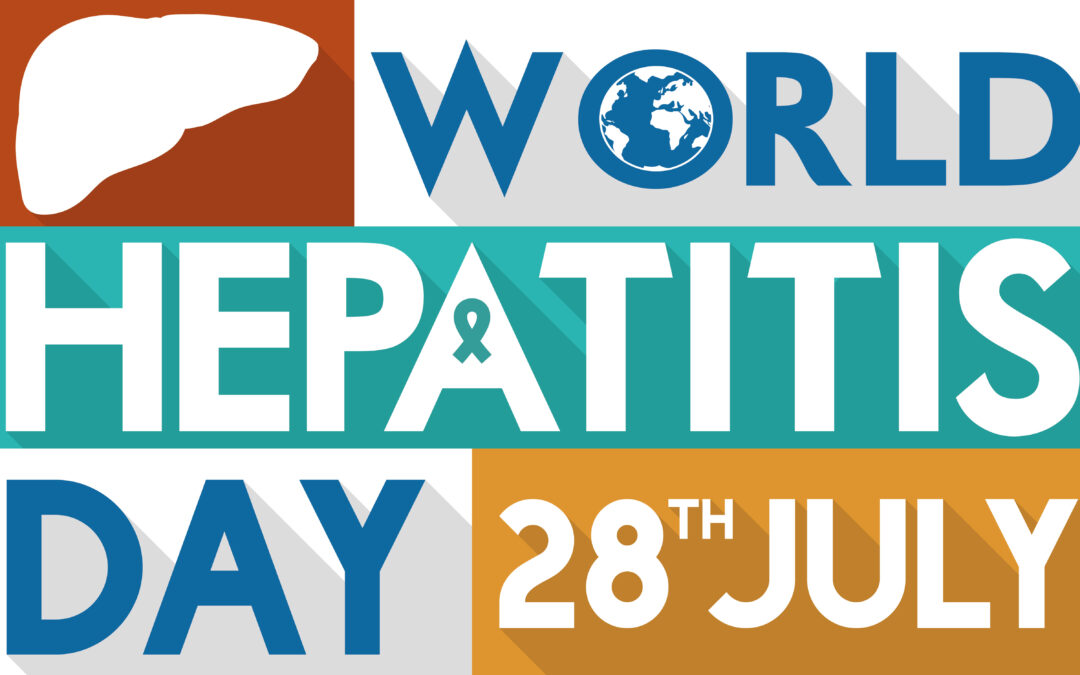World Hepatitis Day is celebrated on the 28th of July and is designed to raise awareness, support and show a unity of strength in the community.
Currently, here in the UK, over 180,000 people are chronically infected with Hepatitis B, and over 144,000 are estimated to carry the Hepatitis C virus. It is estimated that around 1.1 million deaths yearly are attributed to Hepatitis. Although the figures in the UK are stable, in parts of the world which suffer poor sanitation, the death rates are far more significant. Worldhepatitisday.org is a great place to start if you wish to get involved in the ‘I Can’t Wait’ campaign for WHD 2022.
What is Hepatitis?
Hepatitis is a term we use to describe and diagnose liver inflammation. While most forms are caused by infection, Hepatitis can also be caused by excess alcohol.
There are many types of Hepatitis which include –
- Hepatitis A
- Hepatitis B
- Hepatitis C
- Hepatitis D
- Hepatitis E
- Alcoholic Hepatitis
- Autoimmune Hepatitis
How do you know if you have Hepatitis?
People who have Hepatitis are mostly unaware of their condition. This is because symptoms are generally not evident until Hepatitis has taken hold of the liver and symptoms of liver damage occur.
When symptoms do present, they show themselves as:
- Fever
- Joint and muscle pain
- Fatigue
- Sickness
- Loss of appetite
- Abdominal pain
- Discolouration of the urine
- Pale coloured faeces
- Itchy skin
- Jaundice – especially in the eyes
With the correct knowledge and understanding of Hepatitis, many deaths can be prevented. So, what needs to be done?
Identify At-Risk Patients
While Hepatitis is more prevalent in some countries than others, everyone is at risk, be it infants or the elderly. In addition, all races and backgrounds are susceptible. Since everyone infected does not show symptoms, it is essential to identify who is at risk and encourage screening.
Hepatitis A is generally transmitted through consuming contaminated water or food. It may also be contracted by contact with someone carrying the infection. Hepatitis A is typically found in people who:
- Are very young
- Have not been vaccinated
- Have not been previously infected
- Live in areas with poor sanitation or a lack of safe drinking water
- Use drugs recreationally
- Live with infected persons
- Have a sexual partner who has Hepatitis A
Hepatitis B and C are primarily transmitted because of contaminated needles, unsafe sex with infected partners, and during childbirth, if the mother is infected. Hepatitis B is most likely to infect people who:
- Are sexually active but are not in monogamous, long-term relationships
- Have a close family member or mother with Hepatitis B
- Have HIV
- Are men who have sex with men
- Live with someone who has Hepatitis B
- Inject illicit drugs
- Work in healthcare and may be exposed to blood
- Have chronic kidney or liver disease
- Have tattoos or piercings that may have been infected
- Originate from or travel to parts of the world where Hepatitis B is more common, such as the Pacific Islands, Asia, and Africa
Hepatitis C is most common in people who:
- Had a blood transfusion or organ donation before June 1992 (the time when sensitive tests for Hepatitis C virus [HCV] were introduced)
- Sexually transmitted, mainly in the MSM population, with a higher rate of transmission in HIV-positive persons
- Have injected drugs
- Work in healthcare and might experience needle-stick accidents.
- They were born to mothers with HCV
Hepatitis D only affects people who are already infected with hepatitis B.
Hepatitis E is most common in people who:
- Have ingested raw or undercooked pork meat or offal.
Encourage Vaccinations
Hepatitis A and B vaccines are safe and effective for Hepatitis A and B.
The Hepatitis B vaccine is routinely available and is normally provided to babies as their first “6 in 1” vaccine unless instructed otherwise.
The WHO (World Health Organization) states that the Hep B vaccine is 95% effective in preventing infection. This vaccine is thought to offer protection for at least 20 years.
People in the at-risk group should consider being vaccinated again in adulthood even if they have had the 6 in 1 vaccine.
There is currently no vaccine for Hepatitis C but there are now antiviral medicines that can cure more than 95% of people with Hepatitis in as little as 3 months.
It is possible to reduce the risk of infection by avoiding activities that put individuals in contact with infected blood. In addition, it is essential to avoid injecting drugs.
If you wish to discuss this subject further, want to book in for a screening or simply wish to get vaccinated, contact us today.
Alternatively, you can email our nurse at – nurselare@drwaynecottrell.com for any vaccine enquiries and to check the stock and suitability of vaccination.

